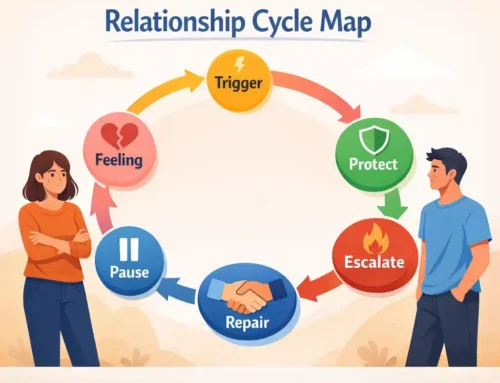
Approx. read time: 4.9 min.
Post: The Meaning and Importance of Family in Today’s World
The Meaning and Importance of Family in Today’s World. Family is one of the most fundamental and essential aspects of human life. It provides love, support, and a sense of belonging, shaping our identity and influencing our values. However, the concept of family has evolved over time, expanding beyond traditional structures to embrace diverse relationships. This article explores the meaning of family, the roles within it, its impact on individuals, bonding strategies, and how family dynamics have changed over time.
What is Family?-The Meaning and Importance of Family in Today’s World
Traditionally, family has been defined as a group of individuals related by blood, marriage, or adoption. However, in modern society, the definition of family has expanded to include chosen families—people who are not necessarily related but share strong emotional bonds and mutual support.
Who Can Be Family?
- Biological Family: Parents, siblings, children, grandparents, and extended relatives.
- Adoptive Family: Individuals who legally become part of a family through adoption.
- Blended Family: Families formed by remarriage, including step-parents and step-siblings.
- Chosen Family: Close friends, mentors, or significant people who provide love and support similar to a traditional family.
Ultimately, family is not solely about genetics but about deep connections, care, and a shared sense of responsibility for each other’s well-being.
The Roles of Each Person in the Family
Each family member plays a crucial role in maintaining the balance and emotional stability of the family unit. These roles may vary depending on cultural, societal, and personal beliefs.
Parents
- Provide emotional and financial support.
- Instill values, discipline, and education.
- Serve as role models and guides.
Children
- Learn from parents and elders.
- Contribute to the family dynamic with love, energy, and a sense of joy.
- Develop their own roles in supporting the family emotionally and later, financially.
Siblings
- Offer companionship and support.
- Teach teamwork, conflict resolution, and compromise.
- Act as lifelong friends and confidants.
Grandparents
- Provide wisdom and guidance.
- Offer emotional and, at times, financial support.
- Play a nurturing role in raising grandchildren.
Extended Family (Aunts, Uncles, Cousins, etc.)
- Offer additional layers of support and companionship.
- Help maintain family traditions and values.
Each person’s role in the family is crucial, and the dynamic changes as individuals grow and evolve.
The Impact of Family on Individuals-The Meaning and Importance of Family in Today’s World
A family’s influence on an individual can be both positive and negative, shaping personality, behavior, and life choices.
Positive Impacts of Family
- Emotional Support – Family provides love, encouragement, and a sense of belonging.
- Security and Stability – A strong family offers a safe environment where members feel protected.
- Moral and Ethical Development – Families instill values, discipline, and guidance.
- Social Development – Early interactions with family members help build communication and interpersonal skills.
- Academic and Career Success – Supportive families encourage education and career growth.
Negative Impacts of Family
- Dysfunctional Relationships – Toxic family environments can lead to emotional distress.
- Unrealistic Expectations – Excessive pressure from family can result in stress and anxiety.
- Neglect or Abuse – Family conflicts, neglect, or abusive behavior can have long-term psychological effects.
- Generational Trauma – Unhealthy behaviors, such as poor communication or emotional repression, can be passed down through generations.
A family’s influence is profound, and fostering a healthy family environment is essential for individual and collective well-being.
Building Trust and Strengthening Family Bonds
Trust and strong relationships are the foundation of a happy family. Here are some bonding ideas to help strengthen family ties:
- Quality Time Together – Engage in activities such as game nights, movie marathons, or shared hobbies.
- Open Communication – Encourage honest and respectful discussions to resolve conflicts and build understanding.
- Family Traditions – Establish special traditions like Sunday dinners, holiday celebrations, or annual vacations.
- Support Each Other’s Goals – Show encouragement and pride in each other’s achievements.
- Acts of Kindness – Small gestures like handwritten notes, thoughtful gifts, or simply listening can strengthen bonds.
- Teamwork and Responsibility Sharing – Dividing household responsibilities fosters cooperation and mutual respect.
- Creating a Safe Space – Ensure every family member feels heard, valued, and respected.
By actively engaging in these bonding activities, family members can cultivate a supportive and loving environment.
The Evolution of Family in Today’s World
The concept of family has changed significantly over time, influenced by social, economic, and cultural shifts.
Past vs. Present Family Dynamics
- Traditional Families – In the past, families followed rigid structures, often with one primary breadwinner and defined gender roles.
- Modern Families – Today, family structures are diverse, with dual-income parents, single-parent households, and LGBTQ+ families gaining recognition and acceptance.
- Technology’s Role – Digital communication has reshaped family interactions, enabling long-distance connections but also sometimes reducing in-person engagement.
- Work-Life Balance Challenges – With evolving career demands, families must find ways to balance professional and personal life.
Despite these changes, the essence of family—love, support, and connection—remains unchanged. The modern family may look different, but its importance in our lives is as strong as ever.
Conclusion
Family is more than just a group of people; it is a source of love, support, and identity. It comes in various forms, each valuable and meaningful in its own way. While family can have both positive and negative impacts, maintaining open communication, trust, and bonding activities helps create a healthy environment. As family structures evolve, the fundamental need for connection and belonging remains a cornerstone of human life.
In today’s world, family is defined not by blood alone but by the relationships and commitment we build with those who stand by us, through thick and thin. Whether traditional, blended, or chosen, family remains a vital foundation for personal growth and happiness.










